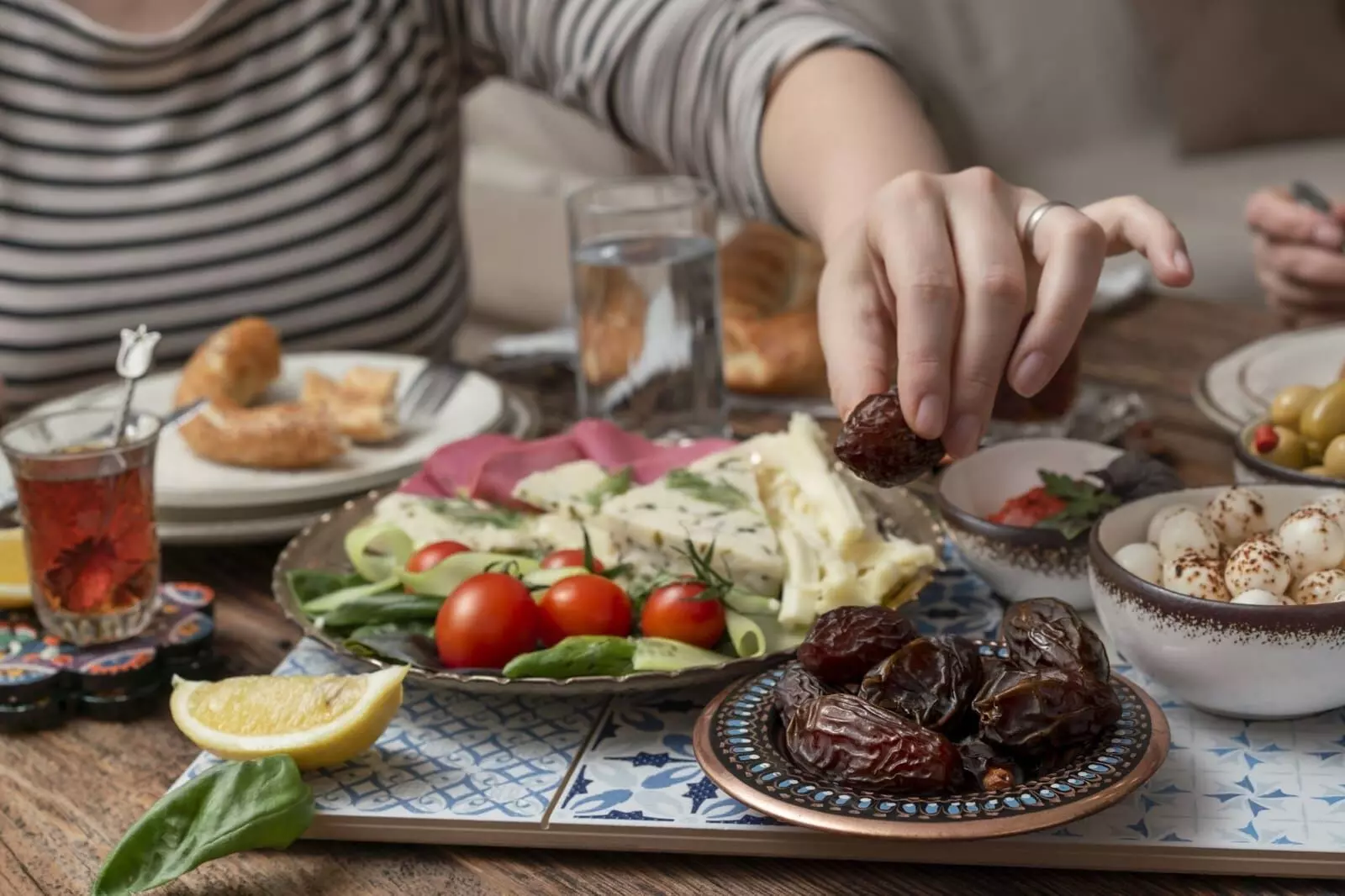Nutritionist speaks: How people can stay healthy and hydrated during Ramzan
As the eating window is limited during Ramzan. We should nourish our body wisely.
By Newsmeter Network
Hyderabad: Iftar (Food taken while breaking the fast) must be light and healthy. The most important aspect is hydration of the body and tips to maintain a healthy balance.
What foods should I eat during sahoor (pre-dawn meal)?
Slow-digestive foods are the key foods for sahoor. Fat is the slowest digestive nutrient it is essential to incorporate good fats in sahoor. One good example of slow digestive food is paneer as paneer is rich in good fats and protein called casein which is the slowest digestive protein. The sahoor food should contain complex carbs, fiber, protein, and fats to nourish you. Add meat, paneer, chicken, and eggs as sources of protein and nuts, olive oil, ghee, and paneer as sources of good fats. Add either rice, multi-grain roti, sattu roti being the source of complex carbs along with fibers from vegetables. The blend of these nutrients keeps you full for a long time with sustained energy levels. To all rice lovers, you can indeed have white rice(carbs) along with ghee (good fat) complemented with ample vegetables(fiber). This combination of vegetables with rice will slower the digestive process and prevent instant blood sugar spike.
What foods are best to eat during iftar?
Instant rehydration is what our body demands in iftar. Water, dates, and fruits are a conventional and nourishing way to break the fast. The combination of water dates and fruits replenishes fluids and hydrates us. They are fast digestive foods and benefit us immediately.
Ensure you do not go for solid food especially processed and junk food to break the fast, your body needs instant hydration. These complex foods will add load to a hydration-craving body and complicate the digestive process.
What are the common mistakes people do during Ramzan?
As the eating window is limited during Ramzan. We should nourish our bodies wisely. A very common mistake people make is to eat fried food, processed and junk food to break the fast. Junk and processed foods have little nutrient content. These foods add calories that lead to unnecessary weight gain and malnourishment. The fried foods from restaurants are usually made from cheap vegetable oils that cause inflammation in our bodies and chronic inflammation is the root cause of various health issues.
Another mistake people often make is to consume a solid meal immediately after breaking the fast (Iftar). Prefer to have a gap of 20-30 minutes between iftar and solid meal. A sudden rush of solid food can hamper the bioavailability of nutrients and can also lead to constipation.
Eat right in the short window, replenish the body with healthy nutrient-rich food, and simply keep away the junk. You are all set!!
Tips to keep hydrated during Ramzan
Drink enough water before starting the fast: Make sure to drink enough water before the start of the fast to keep yourself hydrated throughout the day.
Avoid sugary drinks: Sugary drinks like soda or juice can dehydrate you even more. Opt for water or unsweetened drinks instead.
Limit caffeine intake: Caffeine can be dehydrating, so it's best to limit your intake of coffee, tea, and other caffeinated beverages.
Eat hydrating foods: Foods with high water content like watermelon, cucumbers, and oranges can help keep you hydrated.
Try to sip water regularly during non-fasting hours to help your body stay hydrated.
Avoid salty foods: Salty foods can increase thirst and dehydrate you faster. Limit your intake of salty foods during Ramadan.
Listen to your body: Pay attention to your body and drink water whenever you feel thirsty.
Author-
Ali Mohammed
Nutritionist & Lifestyle Coach